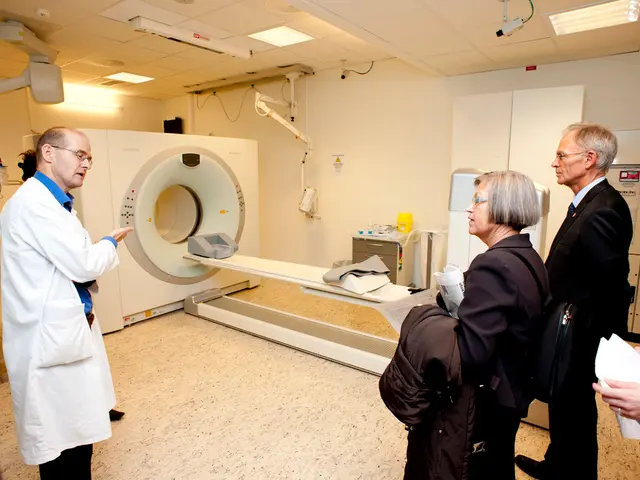Increase in per capita healthcare expenditure in Germany exceeds 40% since 2015
In a revealing report issued by the Federal Statistical Office in Wiesbaden on Friday, it was revealed that the direct costs of diseases in Germany have escalated significantly over the past few years, with the total expenditure rising from €430.1 billion in 2020 to €491.6 billion in 2023.
This increase represents a 40% jump since 2015, primarily due to rising care costs driven by demographic changes, increased costs for staffing, energy, and catering in the healthcare and eldercare sectors, and growing demand for healthcare services due to an aging population.
These factors have led to higher operational costs and increased financial burdens on both the healthcare system and patients.
More specific factors contributing to this surge include:
- Demographic Change: Germany's aging population increases the need for chronic disease management and long-term care, raising overall healthcare expenditures.
- Rising Costs in Care Facilities: Since 2017, co-payments for care home residents have increased significantly, reflecting higher operational costs such as wages, energy, and catering.
- Structural Changes in Geriatric Care: Increasing involvement of private and foreign investors in retirement homes has led to shifts in cost structures, sometimes emphasizing profitability that impacts care costs.
- General Medical Cost Trends: Healthcare costs are rising globally due to behavioral health spending, price increases of drugs (notably new treatments like GLP-1 drugs), and hospitals absorbing heavier operating expenses while trying to maintain care quality.
- Competitive Public-Private Healthcare Model: Germany’s system combines public and private sectors, leading to shorter wait times but potentially higher per capita spending due to competition and investment in advanced services.
While economic growth in Germany remains modest and labor market conditions steady, these do not appear sufficient to offset the increasing cost pressures in healthcare.
Mental and behavioral disorders accounted for €63.3 billion in direct costs, making them a significant contributor to the overall expenditure. Cardiovascular diseases, mental disorders, and behavioral disorders were the most costly diseases in 2023.
The per capita disease costs in Germany stood at €5,900 per capita in 2023, a 42.4% increase from 2015. The per capita disease costs varied significantly across different age groups, with those over 85 years old experiencing the highest costs at €28,860, while children under 15 had costs of €2,450. People aged 65 and over had the highest per capita disease costs at €14,070.
Diseases of the digestive system had direct costs of €50.6 billion, while so-called neoplasms, including cancer, had direct costs of €47.6 billion. Musculoskeletal diseases had direct costs of €49.9 billion.
In 2015, diseases caused direct costs of €337.1 billion in Germany. The total direct costs for people aged 65 and over were €261.8 billion.
This escalating trend in healthcare costs highlights the need for comprehensive strategies to manage these costs, ensuring accessibility and affordability of healthcare services for all.
- The surge in health expenditure, per capita, in Germany as a percentage, has risen significantly over the years, with science and medical-conditions like cardiovascular diseases, mental disorders, behavioral disorders, diseases of the digestive system, and neoplasms (including cancer) significantly contributing to this increase.
- To tackle the escalating trend in health-and-wellness costs in Germany, it's crucial to implement comprehensive strategies that not only ensure the affordability of healthcare services for all but also emphasize research and innovation in science and healthcare to improve treatment and care for various medical-conditions.








